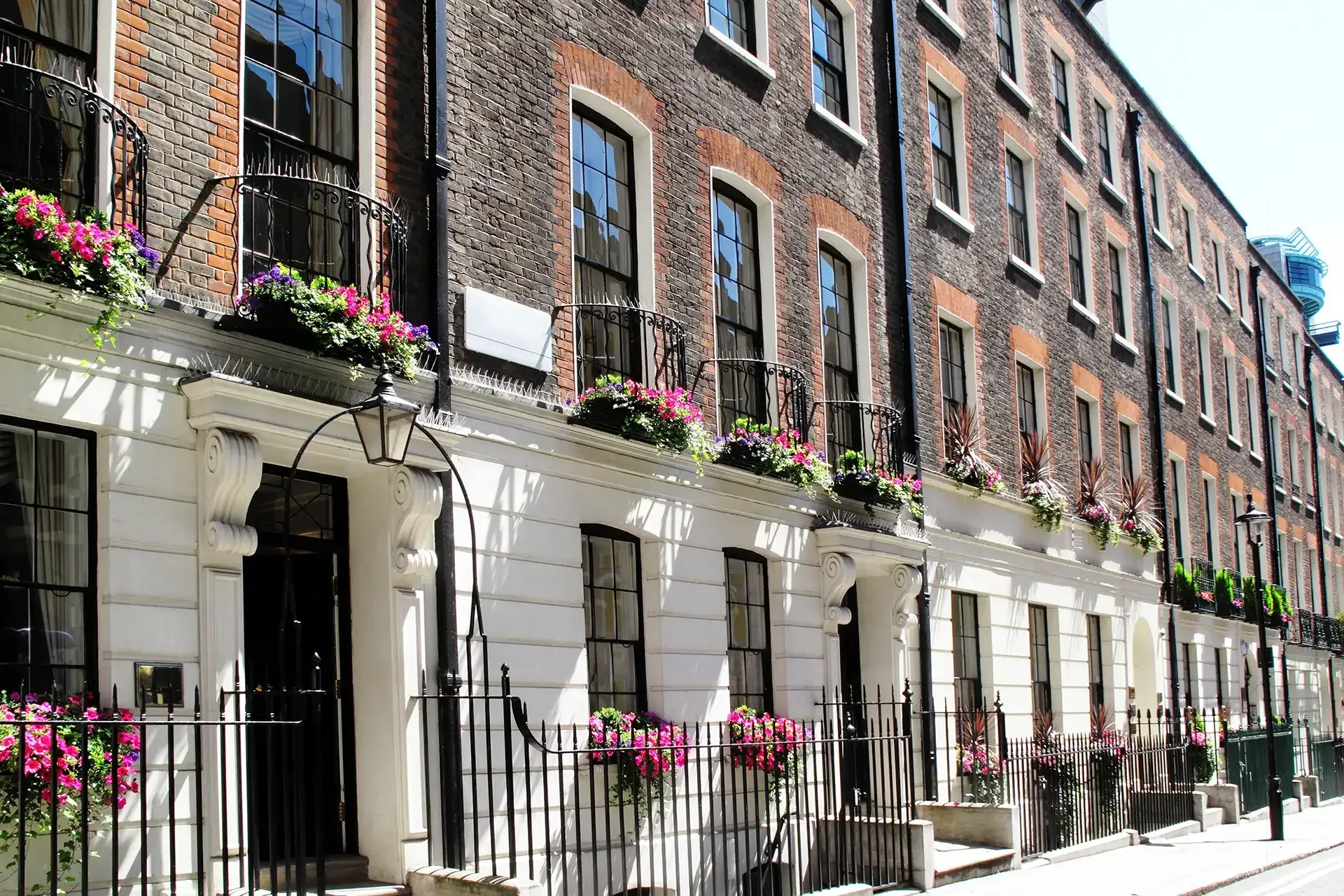Use a trust to pay for your grandchildren’s school fees and save tax
You can set up a trust fund to help pay children’s private school fees and use their own personal allowances. This is dependent on your personal circumstances, but where you have family owned companies spanning multiple generations, you can consider setting up a trust to facilitate payment of private school fees in a tax efficient way (and help with your inheritance tax planning too).
This will not only save you paying tax at rates of up to 45%, but can yield cash savings of over £6,500 per child, per year.
If this is something that you are interested in, then keep reading to find out if you are eligible to set up a private educational trust fund for your child.
What is a trust fund?
A trust fund is simply a way of holding money 'in trust' for the benefit of usually minor children. A trust fund can then be used to pay school fees and other things for the benefit of the trust's beneficiary(ies).
Educational trust fund
An educational trust fund is not a different type of trust - it's just a way of describing what the trust exists to do.
Given that trusts are often set up to fund school fees for children then they are often referred to as an educational trust fund, although they're not really any different from discretionary trusts.
A discretionary trust is where the Trustees have 'discretion' over how the income and capital of the trust is managed and used for the beneficiaries. This allows parents and grandparents to keep control of the underlying assets, but use the income generated from those assets for paying things like school fees.
Benefits
The main tax advantages of using a trust fund is that you can reduce your inheritance tax liability by gifting away surplus assets and save income tax in the family by using the children's own personal allowances.
If you are already assisting with payment of grandchildren’s school fees out of your own income or capital, then using a trust could be a more tax efficient way of paying the school fees.
So rather than you paying out of your taxed income or capital, you could set up a trust for the benefit of your grandchildren and settle some income generating assets within. When income is earned by the trust, that is then treated as the grandchildren’s income and therefore uses the grandchildren’s personal allowances - currently £12,570 a year.
If the source of the income they receive is dividends in a company, then they can get an additional £1,000 allowance too. And if the source of income is interest income, they could earn another £5,000 tax free on top too.
Children's private school fees are likely to be in the region of £15,000 a year at least, meaning that the majority of their fees could be paid by the trustees quite tax efficiently if you have these circumstances.
The trust income can also be used beyond paying school fees and can fund university fees when the child moves on.
Another advantage is that it also facilitate inheritance tax (IHT) planning for grandparents in a controlled way. Grandparents can gift capital into the trust tax free (up to their nil rate band of £325,000) and providing they survive 7 years then this capital will fall outside their estate for IHT purposes.
Disadvantages
There aren't many disadvantages apart from the fact that any income that goes into the trust can no longer be used by the original settlor's or trustees. Which basically means that you as the grandparents can't benefit from the funds or asset once they're in the trust.
That's not generally a problem though, as you can manage the amount of capital or value of the asset that gets put into the trust in the first place.
If you are, however, transferring an asset like property or cash then you would suffer an inheritance tax liability if the value of the transfer was over the inheritance tax tax free threshold of £325,000. This is known as lifetime inheritance tax and the tax paid rate is 20% over the nil rate band threshold.
How do I set up an educational trust fund?
In order to set up a trust fund in the most tax efficient way, grandparents need to identify the capital they are going to be transferring.For example this could be shares in a limited company, a property, cash or any other capital asset with an income source. It makes sense to transfer an income generating asset for maximum tax efficiency.
Let's take shares in a private limited company. These normally pay out income via dividends, so are a useful asset to transfer into a discretionary trust. The shares will however have a value if the company has been running for a few years.
Normally a transfer into trust would give rise to a capital gains tax charge, but there is a capital gains tax exemption available that you can apply for when the shares are in a trading company.
This means you can transfer shares in the company without paying any capital gains tax on the transfer - it is essentially deferred into the future.
As long as the shares are in a trading company then you should be able to avoid paying any inheritance tax as well on the transfer, which would otherwise be the case if you were transferring cash of property over the inheritance tax threshold of £325,000.
Who can set up an educational trust fund?
Anyone can set up an educational trust fund, however the tax treatment depends on who is making that initial capital transfer.
Where the capital transfer comes from a parent then there is anti-avoidance legislation that means the parent is taxed on the income, which means that there is not much benefit until the child reaches adult age i.e 18.
However if the capital transfer comes from someone other than a parent, then the income is treated as the child's and uses up their personal allowances. For example a grandparent using it to fund grandchildren's education.
Note: there is anti-avoidance legislation meaning that a trust cannot be set up indirectly by the parents for the benefit of their children - this would not result in any tax advantage and therefore the income would be taxed on the parents anyway. As such, always take professional advice to avoid falling foul of the legislation both in line with the letter and substance of the law.
FAQs
Can I pay private school fees through my company?
Just paying directly via your company would mean that you are taxed on the payments as if you had received salary of the same amount. This is therefore not really a tax efficient way or paying school fees as there is no corporation tax benefit.
If your child is working for your business in some way for example carrying out some admin duties, helping on the weekends, assisting your with your social media marketing then you could pay them a reasonable salary commensurate with duties performed. This salary would be tax deductible and form part of the child’s personal allowance. Care must be taken however to ensure that the salary paid is commensurate with duties undertaken and not just a way of extracting funds without any work performed.
Apply for a call and we can talk about your personal circumstances to see if you could be structured more tax efficiently.
What assets Cannot be placed in a trust?
There aren't many assets that cannot be placed into trust, but you probably wouldn't want to place any non income generating assets into trust as there wouldn't be much benefit in doing so.
Any assets that you require to fund your own personal expenses shouldn't be put into trust, as you can no longer benefit from the income once the asset is transferred into trust.
What type of trust is a bare trust?
A bare trust is where you hold the asset on trust for the child until they reach the age of 18. Once they do, they are absolutely entitled to the asset which may not be a good idea particularly if the asset is a property or company shares.
Conclusion
If you are a grandparent that is already contributing towards paying private school fees or would like to do so as part of their inheritance tax planning, then you can use a family trust - also known as a discretionary trust or educational trust to help pay for private school or university fees tax efficiently.
As well securing inheritance tax savings for grandparents, there are also income tax savings by transferring income generating assets into a trust where children are the beneficiaries. This happens by using the children’s personal allowances - given that everyone in the UK has a personal tax free allowance from birth.
If you are part of a multi-generation family company or have grandparents that are willing to gift capital in a controlled manner to facilitate payment of private school fees, then get in touch to see how you could do so tax efficiently. Just fill in the form below to see if you’d qualify for a call.


